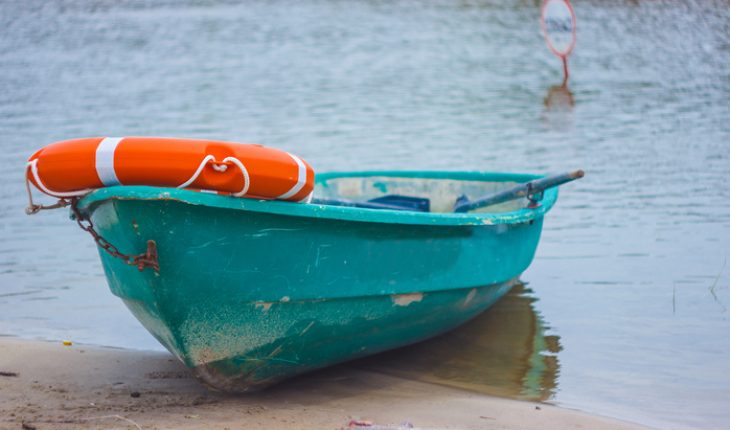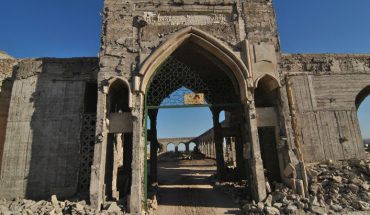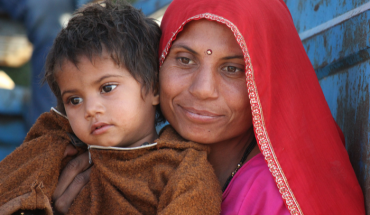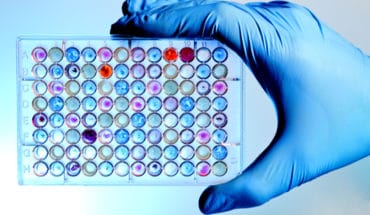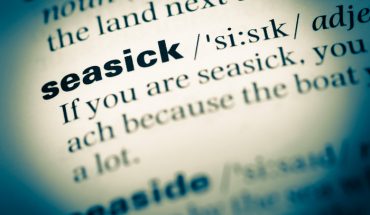Compassion fatigue is what happens when you see the same terrible suffering day after day. When I was reporting on the migrant crisis in the Mediterranean, talking about the people who drowned on the treacherous crossing, people would say ‘I’ve heard all that before.’ But it was a different story and different victims. There were only a few examples of events that managed to cut through the compassion fatigue. Aylan Kurdi’s tiny body washed up on the shore was one.
There were only a few examples of events that managed to cut through the compassion fatigue. Aylan Kurdi’s tiny body washed up on the shore was one.
The picture of the little Syrian boy Omran Daqneesh, 5, sitting covered in dust and blood in the back of an ambulance, was another.
That’s why I made the series for BBC Radio 4’s PM programme highlighting the experiences of Italians living with the reality of the refugee crisis, rather than focusing on the migrants themselves. We felt that our listeners would understand better if they heard the stories of people who were like them. One of these stories has now been published in a book called The Optician of Lampedusa.
Carmine Menna , the eponymous optician in the town of Lampedusa was on a fishing expedition when he came across a scene of human tragedy. What he thought were the cries of seagulls were actually the cries of men, women and children who were drowning after their boat sank beneath them. Before that day, he had seen migrants outside his shop and around the town, but he had kept himself to himself, avoiding too much close contact, simply wanting to get on with his normal life. Distancing ourselves from difficulties is how we protect ourselves.
But in that moment, he made a choice to save as many as he could – despite the fact his boat had capacity for 10 and one life bouy- and became a sort of timeless hero. For him, there was no choice or wrestling with conscience. He was very much a sailor and followed the law of the sea which says you must always go to the aid of those in difficulty on the water.
For him, there was no choice or wrestling with conscience. He was very much a sailor and followed the law of the sea which says you must always go to the aid of those in difficulty on the water.
Before the coastguard arrived at the scene, he had saved 47 people and his boat was so laden down that it was dangerously low in the water. Despite his efforts and those of others, 368 people drowned that day. Carmine told me that although some passing boats did stop to help, others sailed right past.
Carmine did not emerge unscathed from those terrible events. When I talked to him, he spoke in a flat monosyllabic voice, constantly twisting the elastic of his sock. His wife, who had been on the fishing trip with him, stood in the doorway crying. She had been so devastated by the scene that she had to be hospitalised. He seemed to me to be the central figure in a modern morality play, an everyman figure who asked us, what you would do in the same situation?
Migrants who do survive and reach a destination, whether that be a camp of the home of a relative, may be deeply scarred by what has happened to them along the way. I spoke to Dr Pietro Bartolo, doctor and gynaecologist on Lampedusa who told me that almost every girl who has arrived on her own has already been raped or sexually exploited. They all used to arrive pregnant he explained– even the little girls of 12, but these days the traffickers have pumped them full of hormones to stop them ovulating. Noone knows the dose they are given. Some have already been sold and are going to be trafficked onwards. The children too are often the victims of violence and are beaten by older adults. There are so many missing children who simply disappear;Europol, the EU’s police intelligence unit estimates that over 10,000 unaccompanied children have gone missing in Europe over the past two yearsand the age of the children going missing is getting lower.
Survivors may also have lost members of their family on route and often they don’t know where the bodies of their loved are. Drowning victims are often buried before they can be identified. This means that people are left in limbo, not knowing and they have nowhere to go to pay their respects. For my radio series, I spoke to a gravedigger who had the awful task of burying the dead who washed up on the shore. His story of tenderness mixed with anger was deeply moving too. I also interviewed a carpenter from Lampedusa who spent his time carving crosses from shipwrecked migrant boats and offering them to Christian migrants. An example of a Lampedusa cross now resides in the collection of the British Museum, a potent symbol of hope and resurrection and a rare example in the museum of living history.
Emma Jane Kirby will be speaking at the upcoming conference The Challenge of Child Refugee Health: Everyone’s responsibility, held at the Royal Society of Medicine in London on October 17th.
- Cutting through compassion fatigue - 12th October 2017

